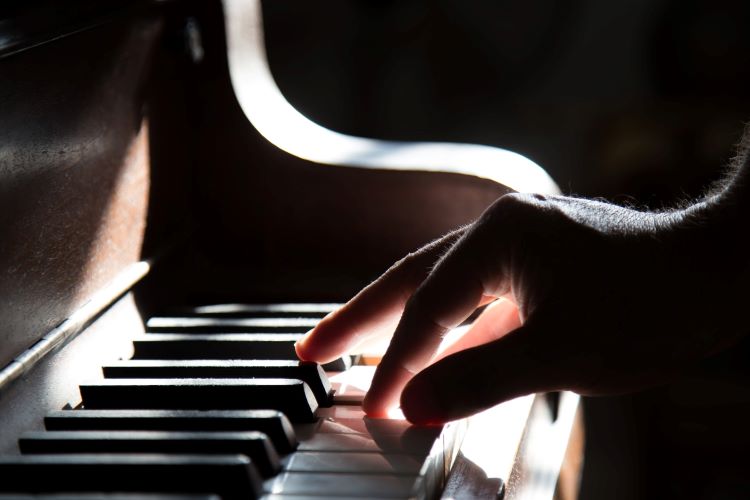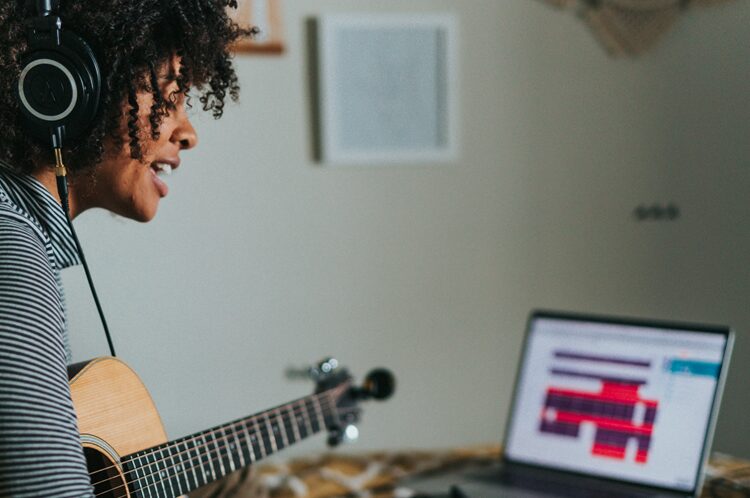Music Therapy for Addiction Rehabilitation
Music therapy is a holistic and non-traditional form of addiction treatment that involves listening to, composing and performing various types of music under the guidance of a qualified music therapist.
Music therapy harnesses the power of music to encourage self-expression, release pent-up emotions and work through repressed feelings of trauma and sadness – all factors that can lead to developing a substance and behavioural addiction.
Unlike psychotherapy, which improves emotional and behavioural disorders via talking, music therapy can help improve wellbeing without the need for verbally communicating your feelings.
Music therapy can involve:
- Singing along to songs
- Learning to play a new instrument
- Writing song lyrics
- Composing melodies
- Listening to music
- Drumming
- Dancing
- Improvising lyrics, music and dancing
- Creating a choreographed dance
- Discussing lyrics, music and the resulting emotions
Holistic therapies like music therapy can help improve recovery from alcohol addiction and substance use disorder by reducing loneliness and stress and reducing relapse.
Along with addiction, this alternative therapy can also be an effective therapy technique for children and adults with autism, mental disorders and dementia.
How does music therapy help emotional and behavioural disorders?

How does music therapy support mental disorders?
Music can soothe us when we feel agitated and distressed, and regularly listening to or composing songs is a mindful activity that can calm feelings of anxiety and depression.
When implemented within a residential centre, music therapy can help patients feel more settled and less anxious therefore making them more open to recovery and treatment. [2]
How does music therapy prevent stress?
Through listening to and creating music, patients can express their feelings in a way that feels comfortable to them within a safe and supportive environment.
How does music therapy prevent loneliness?
This is a social form of therapy that typically takes place with a music therapist. They may ask you questions, or play a piece for you.
How does music therapy support addiction recovery?
Many people dealing with an addiction experience immense feelings of guilt and shame along with low self-esteem and a general lack of confidence in their abilities.
They may have suffered past trauma or battle with detrimental beliefs and mindsets, all factors that can shape an addiction.
Listening to, playing and composing music can heal many emotional wounds and with the guidance of a therapist can allow patients to explore uncomfortable feelings and memories without turning to drugs or alcohol. [1]
Patients may be encouraged to listen to a song that was playing when they first used particular substances, and the therapist may ask them to mentally replay that event in a safe and non-judgemental environment.
There may also be songs that remind patients of a traumatic event, and listening to them in a safe and calm environment can allow them to work through the emotions that arise.
A number of people may have spent years numbing their emotions with drugs and alcohol, and some long-term addictions can even cause permanent damage to the brain. This can leave individuals struggling to express their emotions or even recognise that they have them.
Music has the potential to unlock these feelings and allow the patient to experience them again without the use of drugs or alcohol.
What are the benefits of music therapy for addiction?
There are countless ways in which music can be used to heal and assist recovery as part of addiction treatment, and patients can derive many benefits from this method of therapy.
Some benefits of music therapy as a form of addiction treatment include:
1. Music therapy allows you to express your feelings
As mentioned above, music has the ability to reawaken once-forgotten feelings and emotions even in individuals with damage to the brain caused by substance abuse.
Addiction often stems from trauma, and many people will attempt to block out triggering memories and events by turning to addictive substances. By listening to music that reminds them of the event or creating a song that describes their feelings about the trauma, patients can begin to heal in a healthy way.
2. Music therapy allows you to work through trauma
3. Music therapy encourages self-expression
A person who is dealing with an addiction may often view themselves as merely an addict as opposed to a human being with thoughts, feelings and emotions.
Participating in a creative activity such as composing or performing music can be a reminder that they are more than their addiction and allow them to express their personality through the form of art. [3]
4. Music therapy builds confidence and social skills
Composing a song or learning a new instrument can be a challenge, as well as finding the courage to perform in front of others.
Many people are able to grow their self-confidence while participating in music therapy by setting small goals and accomplishing them, while also building friendships and solidifying their social skills by communicating and working with the therapist and other group members.
How does music therapy prevent relapse?
During and after addiction recovery, many patients experience feelings of boredom and restlessness.
Using drugs, alcohol or other detrimental behaviours as a source of pleasure and entertainment is no longer an option, and it is important that they find a new passion and hobby to occupy their time and keep them feeling motivated on their recovery journey.
Learning to play a musical instrument or beginning to compose songs can be a great source of pleasure and a fun creative challenge.
Research has shown that getting ‘chills’ from music activates the same regions of the brain as cocaine, making it a good, non-addictive alternative to simulate the same pleasure.[4]
What does a typical music therapy session look like?
Many people feel apprehensive about the idea of music therapy, simply because it is a more unusual form of treatment and it can be difficult to know what to expect.
Like most therapy sessions, the initial session will start with an assessment in which an experienced counsellor will ask a series of questions to determine whether the patient would benefit more from listening, performing, composing or a combination of the three.
They will also attempt to understand how the patient is affected by certain types of music, both physically and mentally.
Next, the patient will be encouraged to listen to specific pieces of music, compose their own melody or lyrics and even perform in front of the therapist and other group members if they wish.
The exact content of the session will usually be determined by the therapist, but some sessions are more patient-led depending on the circumstances.
Both during and after each activity, the patient and therapist will discuss the emotions and feelings that emerged from the music and attempt to tease out any deeper meanings that may relate to the patient’s experiences.
Music therapy can take the form of individual sessions or group work, and each session will last for up to one hour.
The treatment will usually take place once a week, with the patient encouraged to listen to music or practice an instrument outside the sessions on a regular basis.
Which addictions can music therapy help to treat?
Almost anyone can benefit from music therapy, whether they are dealing with a behavioural or substance disorder. As long as they can respond emotionally to music they will be able to gain some benefits from this form of treatment.
As music therapy is a complementary and holistic form of treatment, it is most effective when used in combination with more traditional methods such as cognitive behavioural therapy and group therapy.
While music therapy cannot treat an addiction alone, it can go a long way in examining and healing a number of the root causes of the addiction.
Many addictions are rooted in trauma, abuse and unexpressed emotions. Music therapy can help to uncover these issues and work through them in a healthy way, instead of attempting to numb them with substances and compulsive behaviours.
Common addictions that are treated with music therapy include:
If you are dealing with an addiction that is not on this list, get in touch with our team at OK Rehab today – we can assist you in finding a music therapy treatment that works for you.
Do I need to be able to sing or play an instrument in order to benefit from music therapy?
The idea of attending music therapy can be daunting if you have never picked up a musical instrument before, but you do not need to be musically talented in order to benefit from this form of addiction treatment.
Simply listening to various pieces of music can be immensely healing, as music can be intrinsically linked to many key events in our lives.
You may also benefit from the social aspect of music therapy, particularly within group sessions, and some instruments such as hand drums can be played with little musical talent.
It’s possible that you may even discover a new hobby through this form of treatment, which you can continue even once the sessions are complete.
Where can I access music therapy?
While some studies have shown music therapy to be effective as an individual treatment, it is recommended that it is used as a complementary form of addiction recovery as part of a treatment programme that also includes more traditional therapeutic methods.
It is possible to access music therapy on the NHS, but this service is only available in a select number of locations and is generally not offered as part of a comprehensive treatment plan.
We can assist you in accessing music therapy within a treatment programme that suits your location and budget – get in touch today to discuss your options and recovery journey.
References
[1] https://www.ncbi.nlm.nih.gov/pmc/articles/PMC4268880/
[2] https://core.ac.uk/download/pdf/232845263.pdf









